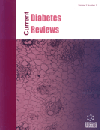-
s The Emerging Role of Metformin in the Prevention and Treatment of Colorectal Cancer: A Game Changer for the Management of Colorectal Cancer
- Source: Current Diabetes Reviews, Volume 18, Issue 8, Oct 2022, p. 4 - 9
-
- 01 Oct 2022
Abstract
Metformin is an old, inexpensive, and relatively safe anti-diabetic medication that can decrease the risk of several types of cancer in patients with diabetes. Recent meta-analyses have revealed that metformin markedly decreased the incidence of colorectal adenoma, advanced adenoma, and colorectal cancer (CRC) among patients with diabetes. Potential mechanisms by which metformin may decrease colorectal cancer risk include its effects on ameliorating intestinal inflammation and dysbiosis, suppressing major proliferative pathways, preventing DNA replication, accelerating tumor cells apoptosis, inhibiting intra-tumor angiogenesis and epithelial-mesenchymal transition (EMT), increasing tumor-infiltrating lymphocytes and CD68+ tumor-associated macrophages, and enhancing T cells cytotoxic activity. It is well-known that metformin can improve overall survival and CRC-specific survival among patients with diabetes and CRC. Interestingly, metformin decreases the incidence of colonic adenoma in patients with acromegaly and reduces the incidence of inflammatory bowel disease (IBD) among patients with diabetes, which can indirectly lower the risk of CRC. Results of phase II clinical trials have revealed that metformin can enhance the anti-cancer effects of chemotherapeutic agents, such as 5-Fluorouracil (5-FU) and irinotecan on refractory CRC. Furthermore, metformin decreases the risk of new polyps and adenomas in patients without diabetes. Regarding the results of previous preclinical and clinical studies, it is rational to assess the effect of metformin in normoglycemic patients with CRC and expand its clinical application for treating CRC or preventing it in a high-risk population.


